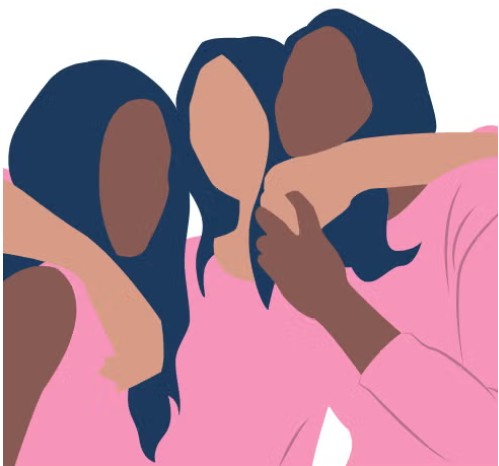As a child, I struggled with befriending girls my age, in school and in our residential building. This childish endeavour continued until my college years. After that, I stopped. Not because I was tired of trying. It was simply because I was taken aback by a personal setback. One of my two childhood besties betrayed me in the most dramatic way imaginable.
I became a recluse and immersed myself in my career and books. I blocked that ex-best friend from all platforms and decided to avoid any family gatherings that her family was attending. Our families had been friends for over three decades. Her unrealistic expectations of unconditional support from me for one of her start-ups were all it took to show me what she really wanted to get out of our friendship. I remember it like yesterday. It was the first and last time I had to say NO to her. I refused to invest in her start-up project. I had warned her not to go ahead with that doomed business venture. I shared my gut feeling with her and explained why I thought her business project was doomed to fall flat. My ex-best friend not only minded deeply, but she blew it all sky-high right in front of our families and stormed out of the room. I was clueless, shocked, and broken-hearted. Choosing not to respond, I walked out. Silently, peacefully, and in the most civil way possible.
That friendship was over. I ended it.
I am not certain whether it fizzled out before I walked away or not. I felt she was not the person I grew up with. But when did she change, and why did I not notice anything before? This was a new version of hers – a loud, money-minded, hot-tempered version I did not want to know. So it was over.
A decade later, our families are still on good terms. I keep my distance. She tried getting back in touch with me, to talk things out, to mend the irreparable. I never returned her calls or messages.
In retrospect, what happened between us was nobody’s fault. We were two different personalities with different priorities. It was complicated. Our families had close ties, which led us to believe we were besties too.
It was only after I sat down to reflect and write on this topic that the undeniable realisation dawned on me. That female friendships are more complex than their male counterparts.
Beneath the surface of shared laughter (and gossip) and mutual support lies a rich tapestry of emotions, expectations, and tacit understanding. An assortment of challenges, societal pressure, and cultural as well as emotional boundaries are interwoven within the complexities of a sisterhood. By sisterhood, I refer to the deep-seated bond and shared experiences that define a female camaraderie.
According to the latest research, an average female friendship can last longer than an average romantic relationship, i.e, 16 years. Female friendships are often more complex than their male counterparts due to the intricate web of emotions, expectations, and societal pressures that women navigate in their relationships. From a young age, women are socialised to prioritise emotional intimacy and connection in their friendships, which can lead to deeply nuanced and multifaceted bonds. These relationships are built on a foundation of shared experiences, trust, and mutual support, but they can also be fraught with challenges such as jealousy, competition, and misunderstandings.
The complexity of female friendships is further compounded by the high expectations that women often have for these relationships. Women may expect their friends to be confidantes, sounding boards, and sources of emotional support, all while navigating the demands of daily life. This can create a rich and rewarding dynamic, but it can also lead to feelings of disappointment, frustration, and burnout if these expectations are not met. Despite these challenges, female friendships remain a vital source of strength, comfort, and joy for many women, providing a sense of belonging and connection that is essential to their well-being.
Upon reflecting on my own experiences and the intricacies of female friendships, I’ve come to appreciate the delicate balance of emotions, expectations, and connections that define these relationships. While they can be a source of profound joy and support, they also present unique challenges that require empathy, understanding, and communication. Through the lens of my own story and the broader dynamics of female friendships, it’s clear that these bonds are both resilient and complex, shaped by the multifaceted nature of women’s experiences and relationships. As I look back on the friendship that ended and the lessons learned, I’m reminded of the value of nurturing meaningful connections and embracing the complexities that make female friendships so rich and rewarding.
Similarly, and pleasantly, I formed a very strong and special bond with some ladies who are my opposites or whom I thought I would never get along well with. These unexpected friendships have taught me that sometimes, the most profound connections can arise from differences, and that embracing our unique perspectives and experiences can lead to a deeper understanding and appreciation of one another. It’s a reminder that female friendships can be a beautiful tapestry of diverse relationships, each with its own unique threads and textures, woven together by shared moments, laughter, and a deepening understanding of one another.
The writer is our Editorial Advisor and a media person and filmmaker based in the UK.



